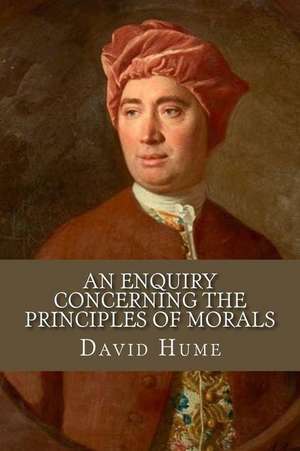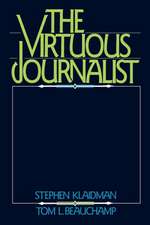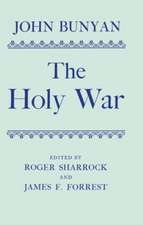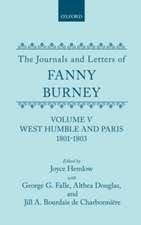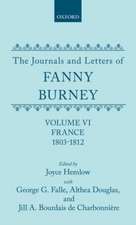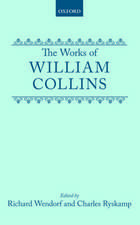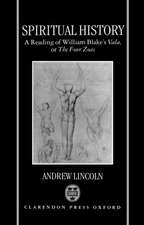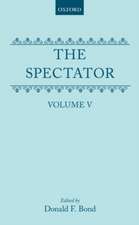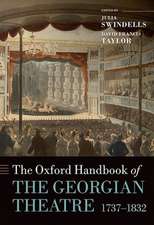An Enquiry Concerning the Principles of Morals
Autor David Hume Editat de Andrea Gouveiaen Limba Engleză Paperback
| Toate formatele și edițiile | Preț | Express |
|---|---|---|
| Paperback (20) | 46.41 lei 3-5 săpt. | |
| CREATESPACE – | 46.41 lei 3-5 săpt. | |
| CreateSpace Independent Publishing Platform – | 50.13 lei 3-5 săpt. | |
| CreateSpace Independent Publishing Platform – | 54.20 lei 3-5 săpt. | |
| Createspace – 31 aug 2009 | 58.62 lei 3-5 săpt. | |
| CREATESPACE – | 66.70 lei 3-5 săpt. | |
| CREATESPACE – | 70.78 lei 3-5 săpt. | |
| Hackett Publishing Company – 31 mai 1983 | 72.24 lei 3-5 săpt. | +11.36 lei 7-11 zile |
| Prometheus Books – 30 apr 2004 | 80.47 lei 3-5 săpt. | |
| CREATESPACE – | 85.46 lei 3-5 săpt. | |
| – | 94.55 lei 3-5 săpt. | |
| CREATESPACE – | 96.16 lei 3-5 săpt. | |
| – | 53.94 lei 6-8 săpt. | |
| Digireads.com – 23 aug 2019 | 59.05 lei 6-8 săpt. | |
| Lector House – 21 iun 2019 | 65.94 lei 6-8 săpt. | |
| A & D Publishing – 31 oct 2008 | 84.18 lei 6-8 săpt. | |
| Alpha Editions – 22 dec 2017 | 86.79 lei 6-8 săpt. | |
| Merchant Books – 25 iun 2009 | 94.59 lei 38-44 zile | |
| Book Jungle – 7 feb 2007 | 113.94 lei 6-8 săpt. | |
| TREDITION CLASSICS – 31 oct 2011 | 146.87 lei 6-8 săpt. | |
| OUP OXFORD – 29 ian 1998 | 260.91 lei 31-37 zile | |
| Hardback (3) | 132.64 lei 6-8 săpt. | |
| A & D Publishing – 3 apr 2018 | 132.64 lei 6-8 săpt. | |
| Binker North – 18 noi 2019 | 151.27 lei 6-8 săpt. | |
| Clarendon Press – 16 iul 1998 | 878.94 lei 31-37 zile |
Preț: 53.94 lei
Nou
Puncte Express: 81
Preț estimativ în valută:
10.32€ • 11.21$ • 8.67£
10.32€ • 11.21$ • 8.67£
Carte tipărită la comandă
Livrare economică 22 aprilie-06 mai
Preluare comenzi: 021 569.72.76
Specificații
ISBN-13: 9781534722279
ISBN-10: 1534722270
Pagini: 116
Dimensiuni: 152 x 229 x 6 mm
Greutate: 0.16 kg
ISBN-10: 1534722270
Pagini: 116
Dimensiuni: 152 x 229 x 6 mm
Greutate: 0.16 kg
Recenzii
These new Oxford University Press editions have been meticulously collated from various exatant versions. Each text has an excellent introduction including an overview of Hume's thought and an account of his life and times. Even the difficult, and rarely commented-on, chapters on space and time are elucidated. There are also useful notes on the text and glossary. These scholarly new editions are ideally adapted for a whole range of readers, from beginners to experts.
The edition of the Enquiry concerning the Principles of Morals is, in a word, superb ... I am full of admiration for the excellence of its scholarship. If the remaining volumes of the Clarendon Edition of Hume reach the same standard, it will be a veritable jewel
The edition of the Enquiry concerning the Principles of Morals is, in a word, superb ... I am full of admiration for the excellence of its scholarship. If the remaining volumes of the Clarendon Edition of Hume reach the same standard, it will be a veritable jewel
Notă biografică
David Hume (/hjüm/; born David Home; 7 May 1711 NS (26 April 1711 OS) - 25 August 1776)[9] was a Scottish Enlightenment philosopher, historian, economist, and essayist, who is best known today for his highly influential system of philosophical empiricism, scepticism, and naturalism.[1] Beginning with A Treatise of Human Nature (1739-40), Hume strove to create a naturalistic science of man that examined the psychological basis of human nature. Hume argued against the existence of innate ideas, positing that all human knowledge derives solely from experience. This places him with Francis Bacon, Thomas Hobbes, John Locke, and George Berkeley, as a British Empiricist.[10] Hume argued that inductive reasoning and belief in causality cannot be justified rationally; instead, they result from custom and mental habit. We never actually perceive that one event causes another, but only experience the "constant conjunction" of events. This problem of induction means that to draw any causal inferences from past experience it is necessary to presuppose that the future will resemble the past, a presupposition which cannot itself be grounded in prior experience.[11] An opponent of philosophical rationalists, Hume held that passions rather than reason govern human behaviour, famously proclaiming that "Reason is, and ought only to be the slave of the passions".[10] Hume was also a sentimentalist who held that ethics are based on emotion or sentiment rather than abstract moral principle. He maintained an early commitment to naturalistic explanations of moral phenomena, and is usually taken to have first clearly expounded the is-ought problem, or the idea that a statement of fact alone can never give rise to a normative conclusion of what ought to be done.[12] Hume also denied that humans have an actual conception of the self, positing that we experience only a bundle of sensations, and that the self is nothing more than this bundle of causally-connected perceptions. Hume's compatibilist theory of free will takes causal determinism as fully compatible with human freedom.[13] His views on philosophy of religion, including his rejection of miracles and the argument from design for God's existence, were especially controversial for their time. Hume influenced utilitarianism, logical positivism, the philosophy of science, early analytic philosophy, cognitive science, theology, and many other fields and thinkers. Immanuel Kant credited Hume as the inspiration who had awakened him from his "dogmatic slumbers".
Descriere
Descriere de la o altă ediție sau format:
About HumeDavid Hume (1711-1776) is one of the greatest of philosophers. Today he probably ranks highest of all British philosophers in terms of influence and philosophical standing. His philosophical work ranges across morals, the mind, metaphysics, epistemology, and aesthetics; he had broad interests not only in philosophy as it is now conceived but in history, politics, economics, religion, and the arts. He was a master of English prose. The Clarendon Hume Edition General Editors: Professor T. L. Beauchamp, Georgetown University, USA, Professor D. F. Norton, McGill University, Canada, and Professor M. A. Stewart, University of Lancaster, EnglandThe Clarendon Hume will include all of his works except his History of England and minor historical writings; it will be the only thorough critical edition, and will provide a far more extensive scholarly treatment than any previous editions. This edition (which has been in preparation since the 1970s) offers authoritative annotation, bibliographical information, and indexes, and draws upon the major advances in textual scholarship that have been made since the publication of earlier editions--advances both in the understanding of editorial principle and practice and in knowledge of the history of Hume's own texts. The Edition will comprise: Volumes 1 and 2: A Treatise of Human Nature, edited by D. F. Norton Volume 3: An Enquiry concerning Human Understanding, edited by T. L. Beauchamp Volume 4: An Enquiry concerning the Principles of Morals, edited by T. L. Beauchamp Volume 5: The Natural History of Religion and the Dissertation on the PassionsVolumes 6 and 7: EssaysVolume 8: Dialogues concerning Natural Religion and other posthumous publications, edited by M. A. Stewart About this workAn Enquiry concerning the Principles of Morals was Hume's third great philosophical work, first published in 1751. Hume's aim in this elegant and lucid work was to present in an accessible way his theory of the foundation of morality in human nature, which had developed significantly since he first addressed the subject in the Treatise of Human Nature (1739/40). He discusses moral psychology; freedom, necessity, and causation; practical reasoning; justice; virtues and other moral qualities. He considered this Enquiry to be 'of all my writings, historical, philosophical, or literary, incomparably the best'. About this volumeThe authoritative version of the text, based upon the 1772 edition that was seen through the press by Hume himself, is presented here accurately and clearly. The editor's introduction sets the work in its historical context; the annotation and glossary provide information about Hume's sources, allusions, citations, and meanings, to help readers towards a full understanding of the text. A biographical appendix identifies the many people mentioned by Hume in the Enquiry. Bibliographies list the works cited by Hume and a selection of the secondary literature. Hume's original index is reproduced, together with a new general index by the editor.
About HumeDavid Hume (1711-1776) is one of the greatest of philosophers. Today he probably ranks highest of all British philosophers in terms of influence and philosophical standing. His philosophical work ranges across morals, the mind, metaphysics, epistemology, and aesthetics; he had broad interests not only in philosophy as it is now conceived but in history, politics, economics, religion, and the arts. He was a master of English prose. The Clarendon Hume Edition General Editors: Professor T. L. Beauchamp, Georgetown University, USA, Professor D. F. Norton, McGill University, Canada, and Professor M. A. Stewart, University of Lancaster, EnglandThe Clarendon Hume will include all of his works except his History of England and minor historical writings; it will be the only thorough critical edition, and will provide a far more extensive scholarly treatment than any previous editions. This edition (which has been in preparation since the 1970s) offers authoritative annotation, bibliographical information, and indexes, and draws upon the major advances in textual scholarship that have been made since the publication of earlier editions--advances both in the understanding of editorial principle and practice and in knowledge of the history of Hume's own texts. The Edition will comprise: Volumes 1 and 2: A Treatise of Human Nature, edited by D. F. Norton Volume 3: An Enquiry concerning Human Understanding, edited by T. L. Beauchamp Volume 4: An Enquiry concerning the Principles of Morals, edited by T. L. Beauchamp Volume 5: The Natural History of Religion and the Dissertation on the PassionsVolumes 6 and 7: EssaysVolume 8: Dialogues concerning Natural Religion and other posthumous publications, edited by M. A. Stewart About this workAn Enquiry concerning the Principles of Morals was Hume's third great philosophical work, first published in 1751. Hume's aim in this elegant and lucid work was to present in an accessible way his theory of the foundation of morality in human nature, which had developed significantly since he first addressed the subject in the Treatise of Human Nature (1739/40). He discusses moral psychology; freedom, necessity, and causation; practical reasoning; justice; virtues and other moral qualities. He considered this Enquiry to be 'of all my writings, historical, philosophical, or literary, incomparably the best'. About this volumeThe authoritative version of the text, based upon the 1772 edition that was seen through the press by Hume himself, is presented here accurately and clearly. The editor's introduction sets the work in its historical context; the annotation and glossary provide information about Hume's sources, allusions, citations, and meanings, to help readers towards a full understanding of the text. A biographical appendix identifies the many people mentioned by Hume in the Enquiry. Bibliographies list the works cited by Hume and a selection of the secondary literature. Hume's original index is reproduced, together with a new general index by the editor.
